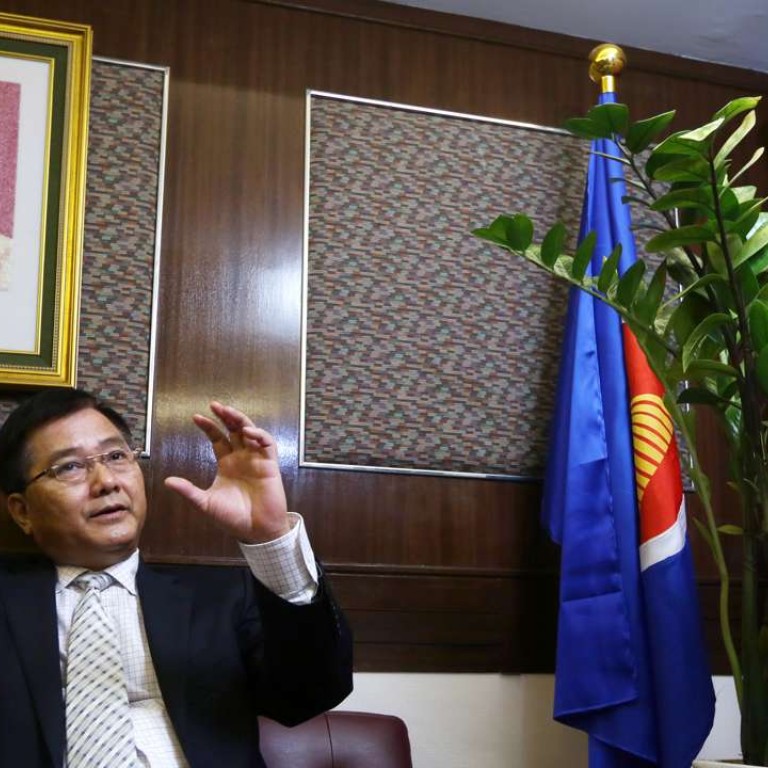
Forging stronger ties: Vietnam welcomes Hong Kong investors as bilateral relations flourish
Hoang Chi Trung, Vietnam’s consul general in Hong Kong and Macau, discusses the many advantages of investing and doing business in his home country
Investors from Hong Kong have been playing an important role in economic construction in Vietnam since the country opened up to foreign investment some 30 years ago. The bilateral relationship between Vietnam and Hong Kong is now stronger than ever, according to Hoang Chi Trung, Vietnam’s consul-general in Hong Kong and Macau.
Hoang says foreign investment has helped Vietnam to transition from being a poor country to being the middle-income nation it is today. “Over the past 30 years, Vietnam has attracted about US$200 billion in foreign direct investment. This, together with development assistance from foreign governments and the World Bank, has helped the country’s economy to grow at 7 to 8 per cent a year over the period.”
He adds that foreign investment has also introduced new technologies and management skills, and has stimulated the market economy to Vietnam. This in turn has led to improvements in the country’s infrastructure – such as new highways, airports, seaports and railway systems – and has created a better business environment for foreign investors.
The Vietnamese government has set up a number of industrial parks to attract foreign investment, Hoang says. These provide land, electricity, water supply and sewage systems, so that investors can set up their factories easily. The government also offers tax substitutions for the import of raw materials, and special tax breaks for periods of up to 10 years are available to those who invest in rural and mountainous areas.
Over the past 30 years, Vietnam has attracted about US$200 billion in foreign direct investment. This ... has helped the country’s economy to grow at 7 to 8 per cent a year over the period
Hoang says investors from Hong Kong have been a major source of foreign investment for Vietnam,
pumping in about US$20 billion over the past 30 years in more than 1,000 projects. In 2015, Hongkongers invested about US$2 billion in Vietnam and the amount is expected to increase this year, with several key projects announced recently.
“For example, Chow Tai Fook will invest US$4 billion to build a hotel and casino in Quang Nam province, the TAL Group will build a textile plant and employ about 2,000 workers, and the Texhong Textile will also build a garment factory,” he adds.
According to Hoang, the hotel industry remains popular with investors from Hong Kong, who have built a number of five-star properties in major cities such as Ho Chi Minh City, Hanoi and Danang. Garments is another popular industry, with products mainly exported to Europe, the United States and Japan. Other favourable industries include electronics, seafood processing, and agricultural produce processing, such as coffee and chestnuts.
Vietnam’s presence in Hong Kong started in 1980s with the opening of a trade office to support business. The consulate was set up about 10 years later. Apart from providing information related to doing business in Vietnam, the trade office also helps potential buyers and investors looking for partners in Vietnam.
Assistance can also be obtained from the consulate, which has been organising regular fact-finding tours to Ho Chi Minh City and Hanoi for business people. It also works with the Chinese General Chamber of Commerce to organise workshops and business briefing sessions in Hong Kong for companies, especially small- and medium-sized enterprises.
To promote Vietnamese food and culture, the consulate teams up with hotels in Hong Kong to organise Vietnamese food festivals with cultural performances by artists from Vietnam.
Meanwhile, bilateral relations between Vietnam and Hong Kong are flourishing, following recent discussions between senior government officials from both sides.
In August, Hong Kong’s Chief Secretary for Administration Carrie Lam led a trade delegation of about 70 people on a visit Ho Chi Minh City and Hanoi to forge closer ties between the city and Vietnam.
During the visit, Lam spoke at a business lunch, and highlighted the competitiveness of Hong Kong, its unique position as a “superconnector” between mainland China and the rest of the world – including Vietnam – and the important role that Hong Kong plays in mainland’s China’s belt and road initiative.
In September, the prime minister of Vietnam, Nguyen Xuan Phuc, led a business delegation of about 100 people to the Hong Kong - Vietnam Business and Investment Forum, and held workshops on business opportunities in Vietnam.

